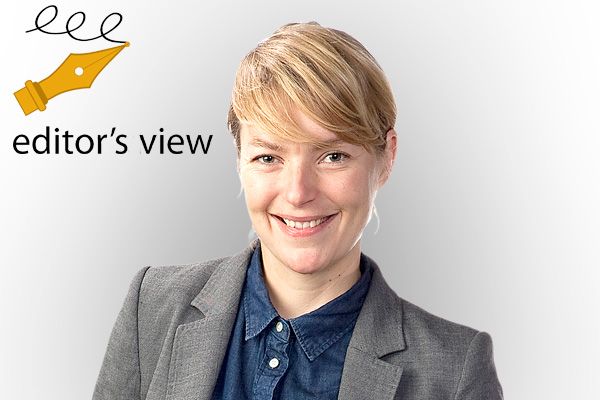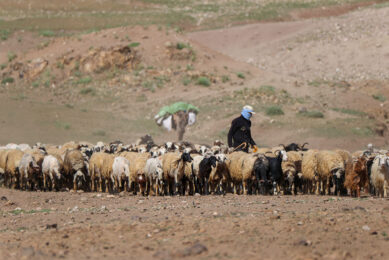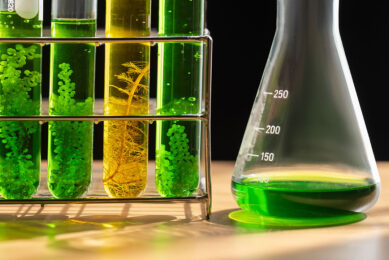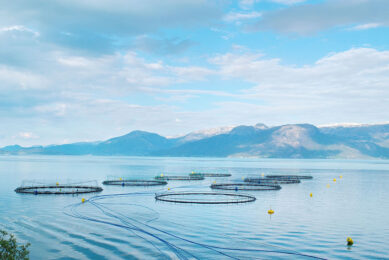Knowledge alone is not enough

At a recent conference I attended, I heard a great speech from David Drew, director of the company AgriProtein, an insect rearing farm in South Africa.
He explained the route he had to take with his company; from its establishment in 2009 to where it is today and its ambition to grow into the largest insect producing farm in the world.
Find the right people
To a large extent, this route was about finding the right types of people who could be good scientists in a fast and dynamic world and would take the (maybe somewhat conventional) route with him. People who looked at things differently and saw the challenges that we could face in the future and hence find (sustainable) solutions for it.
“I always thought that all scientists are geniuses, because they knew so much about one particular subject; whether they are entomologists, animal nutritionists or biotechnologists. But I was wrong. Knowing stuff does not mean you can be a good scientist/nutritionist in any type of company. That is why it took a few years to create the right team that could take the company further. It also involved laying off some people. The people working for AgriProtein have a greater vision”, Drew explained.
New era for scientists
This quote was also an eye-opener for me. “Are all the people working in animal nutrition, geniuses? I remember that the ‘general thought’ used to be that the ‘real scientists’ stayed within the academic environment – focusing on research, teaching and writing scientific papers. Pursuing your career in a commercial company meant that you chose to leave your research goals behind. But I disagree. If I see the fundamental and ground breaking research done by some commercial companies today, it’s amazing. Of course, this research is often done in cooperation with Universities or research institutes, but for me it marks that we enter a different era of being a scientist in the food and feed industry.
Bigger responsibility
A job description for an animal nutritionist – found on a random UK job agency site – says: “Animal nutritionists have expertise and an interest in science and animal welfare and often need strong business management and communication skills. They aim to increase and promote the understanding of the effect of diet on the health, wellbeing and productivity of animals“. Of course this is true, but choosing to be a professional in the feed and food business means that next to formulating animal diets that profits the animal and farmer, you also have a bigger responsibility: feeding the world. A big responsibility that is, I agree, but it means you have to have a bigger vision and find solutions to be able to reach this goal. This goes way beyond only doing research and being a specialist on one topic. Fundamental research remains important and people working in the lab or at Universities is of great importance, don’t get me wrong. But the challenges that we face today in the production of animal protein makes us look at the way we do the research and the way we communicate it.
AgriProtein is – in my opinion – a pioneering company and a company that is different from normal farms or research companies. They have a clear vision on the use of insect protein to feed the world in a sustainable way. For example, they are investigating the use the natural anti-inflammatory properties of larvae to heal lame sheep to their high concentrations of bio-available iron to reduce anaemia in piglets when used in pig feeds. The company’s entomologists are also pioneering fly fertility programmes, whilst their animal nutritionist’s continue to test the use our feeds in complex and sensitive rearing environments.
19-year-old with a vision
A great example of a ‘new type of scientist’ in my opinion is the 19-year-old Boyan Slat. He combines environmentalism, entrepreneurism and technology to tackle global issues of sustainability. He developed a plastic removing machine to clean up the oceans. Working to prove the feasibility of his concept, Slat currently gives lead to a team of about 100 people, and temporarily quit this Aerospace Engineering study at the University of Delft to completely focus his efforts on the ‘The Ocean Cleanup’. He is dedicated to his research (and has the knowledge) and is apparently able to do it without a University degree and without a number of scientific papers in his name. Although Slat is not working in the animal feed or food industry, I think he is a great example for young people working in our industries (or any other field) to understand that ‘knowing everything about a subject’ is not enough anymore.
Join 26,000+ subscribers
Subscribe to our newsletter to stay updated about all the need-to-know content in the feed sector, three times a week. Beheer
Beheer









 WP Admin
WP Admin  Bewerk bericht
Bewerk bericht